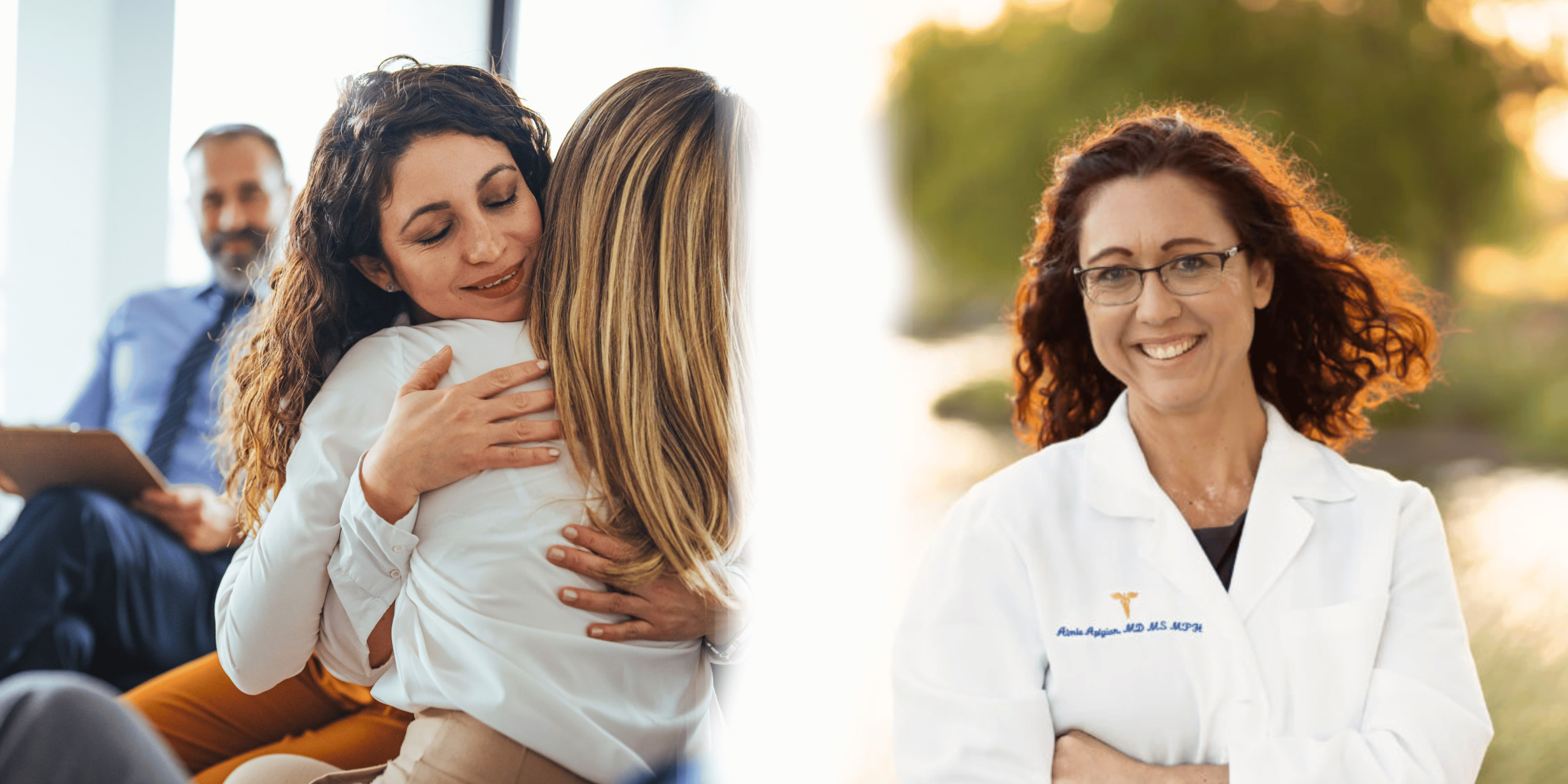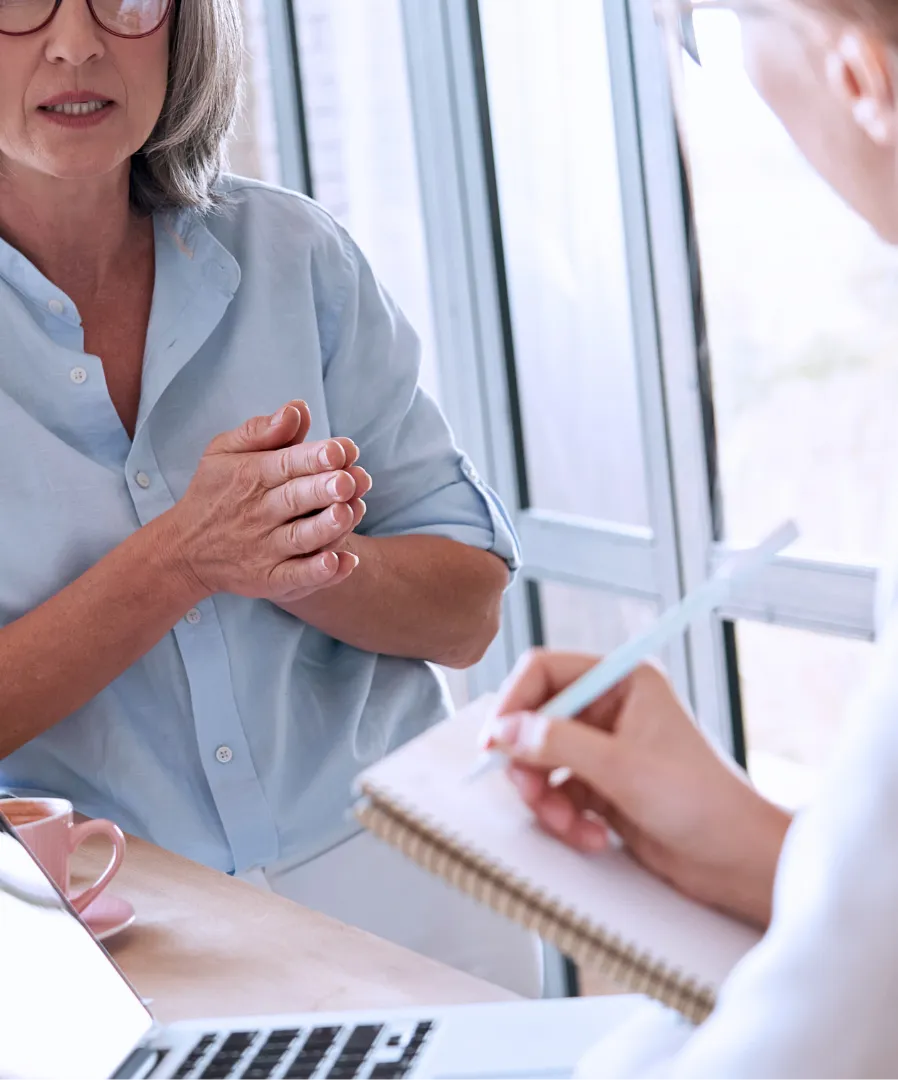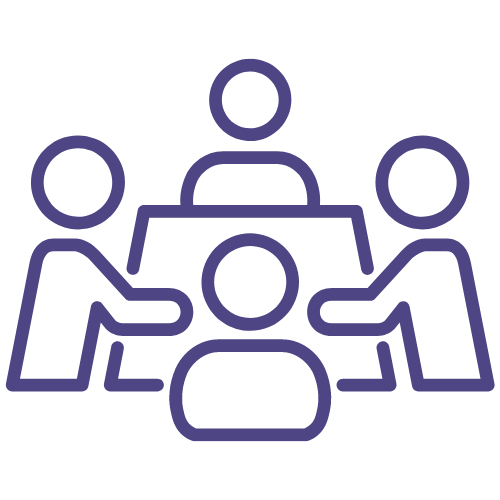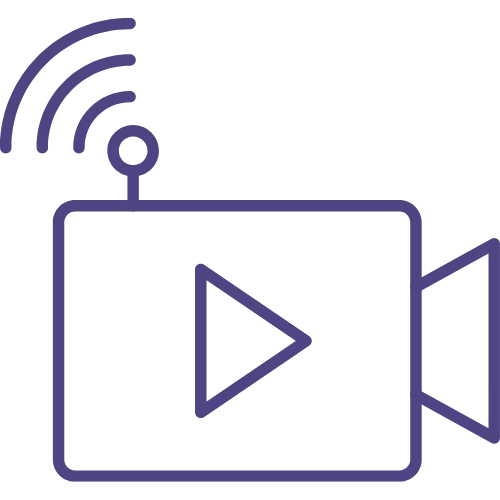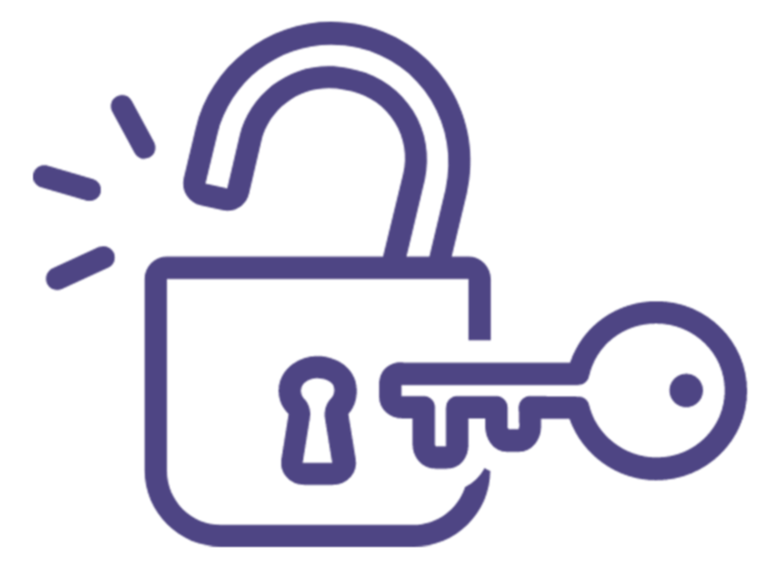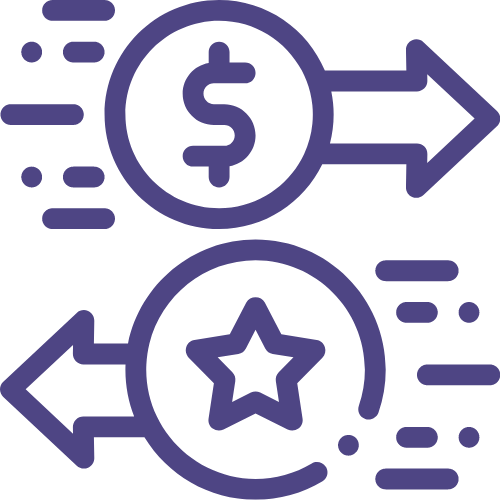WHAT IS THE
Biology of Attachment and Neurodevelopment Module
for Advanced Professionals?
People are searching for answers.
They go over here for this piece, they go over there for that piece. Where can they go for an integrative, comprehensive ability to see trauma and attachment pain then know how to safely address it?
That’s where you come in.
When I look at the world today, what people need most are professionals like you who have a comprehensive view and full arsenal of tools, including assessment and repair tools. In the Advanced Professional training, we will be building off of everything you have learned up until this point. We are taking it a step further, and deeply focusing on how this knowledge and these skills can be incorporated into your practice.
Studying as an Advanced Professional Biology of Trauma® student, you will be diving even one step deeper into how to integrate this content into your practice.
Receive cutting-edge INTEGRATIVE training.

What is included in the Advanced Professional Training?
Who Is This Journey For?

The following is required:
These are the requirements to be eligible for the Advanced Professional Training for the Biology of Attachment and Neurodevelopment module:
- You have taken the foundational module (The 21 Day Journey to Calm Aliveness and All Parts of Me).
- You have taken the Biology of Attachment and Neurodevelopment Module on the Professional Training track. See reference HERE.
- You must enroll in the Professionals Network (PN).
- Please note that membership to the PN is required in order to meet the requirements of completion successfully.
- This is an additional cost to be a part of the Professional's Network. Learn more about the Professionals Network HERE including information on cost and how to become a member.
- One of the main objectives of the advanced level program is to network with and learn from other advanced providers who are trained in the Biology of Trauma® (BoT) approach. We facilitate this objective through our Professionals Network (hosted in the Mighty Networks platform) where we house an exclusive, dedicated community of BoT advanced providers where collaborative discussions can take place. This is where we have the opportunity to deepen our exploration of the program’s content and where your assignments are posted as part of the requirements for completion.
- Advanced Preparatory Course - although this is not a requirement, it is strongly recommended for you to complete prior to week 1, especially if you have not taken the following professional level modules (Freeze, Stress and Letting Go modules). This preparatory course will be accessible on the online course platform as soon as you complete registration for the Advanced Biology of Attachment and Neurodevelopment Module.
What the Advanced Professionals Are Saying About Attachment Training
“I absolutely love this community and the trust that is here. I don’t have to know it all, and I can have discussions with other people and not have to put on that professional air, but actually learn and grow and take it back to the people I am working with… Finding the right community is not that easy. I just love being with you all.”
– Jannete
“This family has kept me grounded and supported… Now that I know what it does to a child, I want to educate them and just help them so that their children would have healthy foundation emotionally stability, emotional stability to develop on… Working with Dr. Aimie over the past year has given me the courage and strength to stand up and do what I am hoping to do.”
– Manisha
“The NARM Assessment was really valuable… This has changed how I do my work. My clients are now going home with empowering tools.”
– Suzanne Carrier
Topics We Will Cover:
Learn how to recognize and assess attachment pain and neurodevelopment gaps. Incorporate an understanding of neuroinflammation, biochemical imbalances, and neurotransmitter imbalances into your case conceptualization and treatment plans. Learn how to personalize the repair tools and strategies for your clients to to repair attachment pain and rewire neurodevelopment gaps at any age.

Marissa Brennan
Training Level:
Biology of Trauma® Professional-
Mastery Level

Cat Dillon
Training Level:
Biology of Trauma® Professional-
Mastery Level

Becky Dawson
Training Level:
Biology of Trauma® Professional-
Mastery Level
This is the 6-week Advanced Professional training:
BONUS: Advanced Preparatory Course
- Beginning to Recognize Trauma Patterns In Your Client
- Beginning to Evaluate Biochemical Imbalances
- Beginning to Evaluate Neurotransmitter Imbalances
- Beginning to Evaluate Brain Inflammation
WEEK 1:
Looking Through the Lens of Trauma | Recognizing & Assessing Attachment Trauma while Working with the Biology of Trauma® Framework
WEEK 2:
Identifying Underlying Contributors in a Biology of Trauma® | Neurodevelopmental Gaps
WEEK 3:
Identifying Underlying Contributors in a Biology of Trauma® | NARMs Assessment Tool
WEEK 4:
Identifying Underlying Contributors in a Biology of Trauma® | Common Biology Factors
WEEK 5:
Integrating the Biology of Trauma® into a Full Case Assessment | Bracing Patterns, Oxidative Stress & Putting It All Together To Create a Roadmap
WEEK 6:
Integrating the Biology of Trauma® Within your Scope of Practice | Personalizing Repair Tools & Strategies for Clients with Attachment Trauma
Schedule of LIVE Sessions
Attendance is required at the Final Presentation Meeting and at least 4 of the Implementation Meetings. Although live attendance is recommended for all other live sessions, it is optional and the recordings will be available to review at your convenience.
Implementation Meetings
Every Thursday
BONUS: Integration Sessions with Dr. Aimie
Every Friday
Final Presentation Meeting
Weekly Time Commitment
You should expect to set aside approximately 6 hours per week for this module:
- Video Recordings | approximately 2 - 2.25 hours per week average.
- Weekly Implementation Meetings | 45 minutes per week.
- Deepening Exercises | estimating approximately 3 hrs per week | This includes working through the deepening exercises, posting your assignment in the Professionals Network, and responding to peers' posts. This may vary depending on your previous experience and training.
*Allow approximately 36 hours for the entire module or more, depending on how much time it takes you to complete the deepening exercises, assignment and posting in the Professionals Network.
The weekly enrichment content is additional and can vary widely from approximately 15 mins to over an hour. It is strongly recommended for you to review this content to deepen and add to your understanding of the course materials, however it is not required.
Plus the BONUS: Advanced Preparatory Training Course | approximately 3-4 hours or more | This includes watching the training videos and reading through the written course content and handouts. It is strongly recommended to complete prior to the start of the module. If you have already taken a module in the Advanced Professional Program, you would have already completed this Advanced Preparatory Training and would not need to complete this again.
EARLY ACTION BONUS!
Easing Attachment Bracing Patterns:
A Somatic Parts Workshop
00
DAYS
00
HOURS
00
MINS
00
SECS
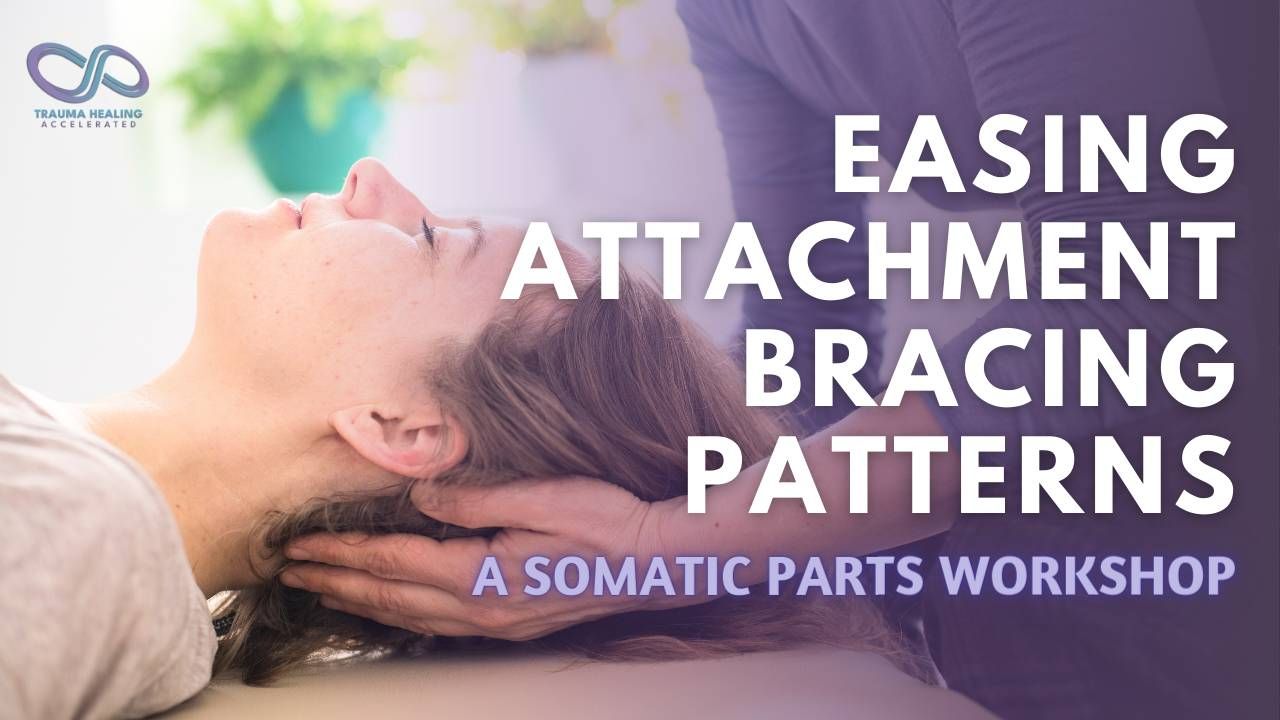
Over 4 Hours of Content
Total Value: $350
Includes: 4 self-study video modules accompanied by printable guidebooks for each module.
- Module I: Attachment Trauma Adaptations and Bracing Patterns
- Module II: Tools For Working With Attachment Bracing Adaptations
- Module III: Instructions On Written Communication With Parts
- Module IV: A Guided Mind-Body Dialogue With Attachment Bracing Part

A 20-minute masterclass featuring Dr. Aline LaPierre, a renowned somatic psychotherapist, author, and educator, known for creating NeuroAffective Touch®. She is the President of the United States Association of Body Psychotherapy (USABP) and Editor-in-Chief of the International Body Psychotherapy Journal (IBPJ). During the conversation, Dr. Aimie and Dr. Aline LaPierre discussed the different types of early touch and the significance of early touch experiences in shaping our neurodevelopmental attachment patterns.
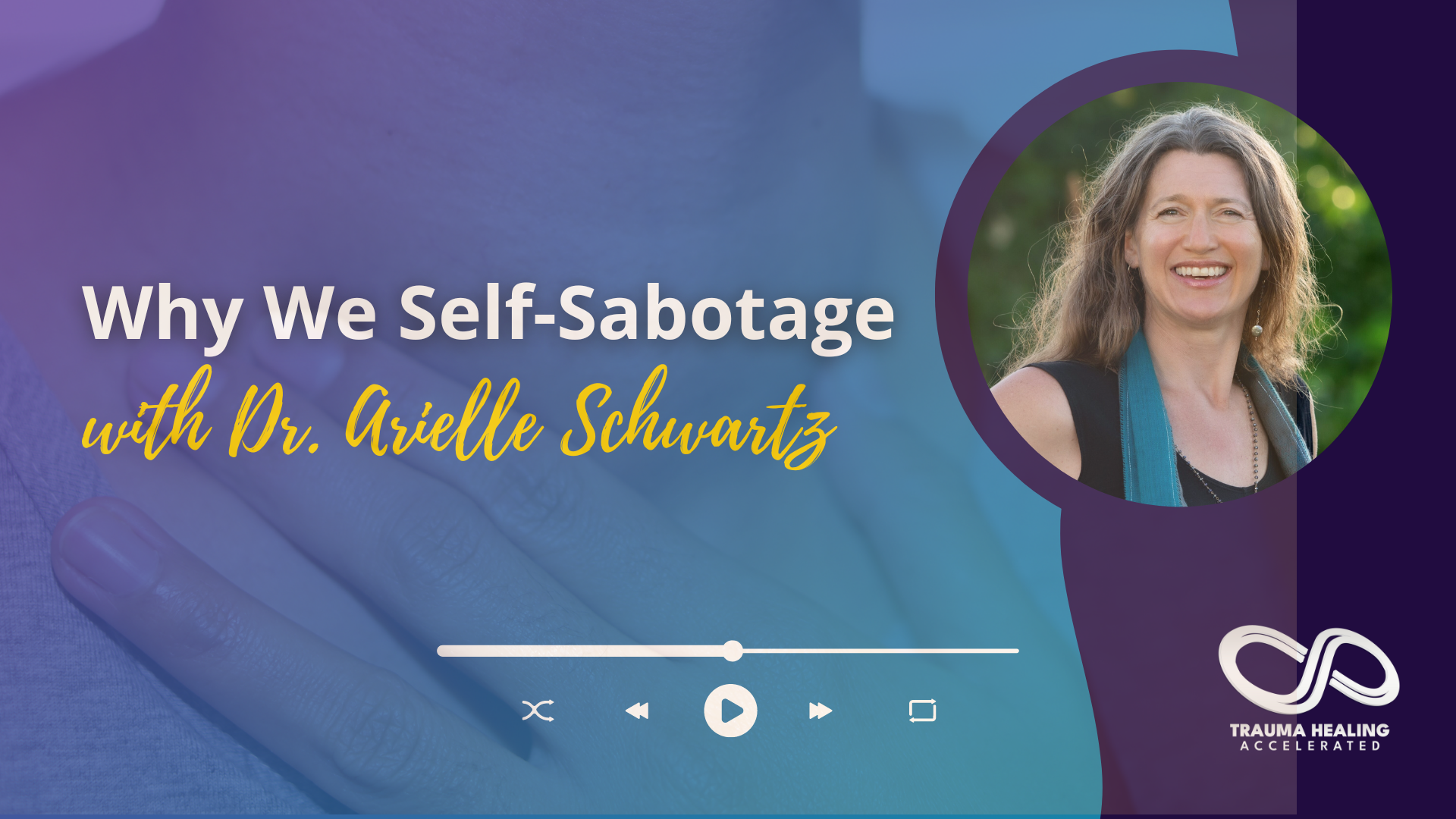
A 47-minute interview with Dr. Arielle Schwartz, a psychologist, internationally sought-out teacher, yoga instructor, and leading voice in the healing of PTSD and complex trauma. In this discussion with Dr. Schwartz, they explore the reasons behind self-sabotage, highlighting the internal conflicts and how early life experiences shape these dynamics.

A 38-minute interview with Stephen W. Porges, Ph.D. is a Distinguished University Scientist at Indiana University where he is the founding director of the Traumatic Stress Research Consortium and a Professor of Psychiatry at the University of North Carolina. During the discussion, Dr. Porges and Dr. Aimie explored the intricate connections between love, trust, and attachment, highlighting how these elements influence neurodevelopment and shape our relational patterns.

Live Interviews with Special Guest Speakers

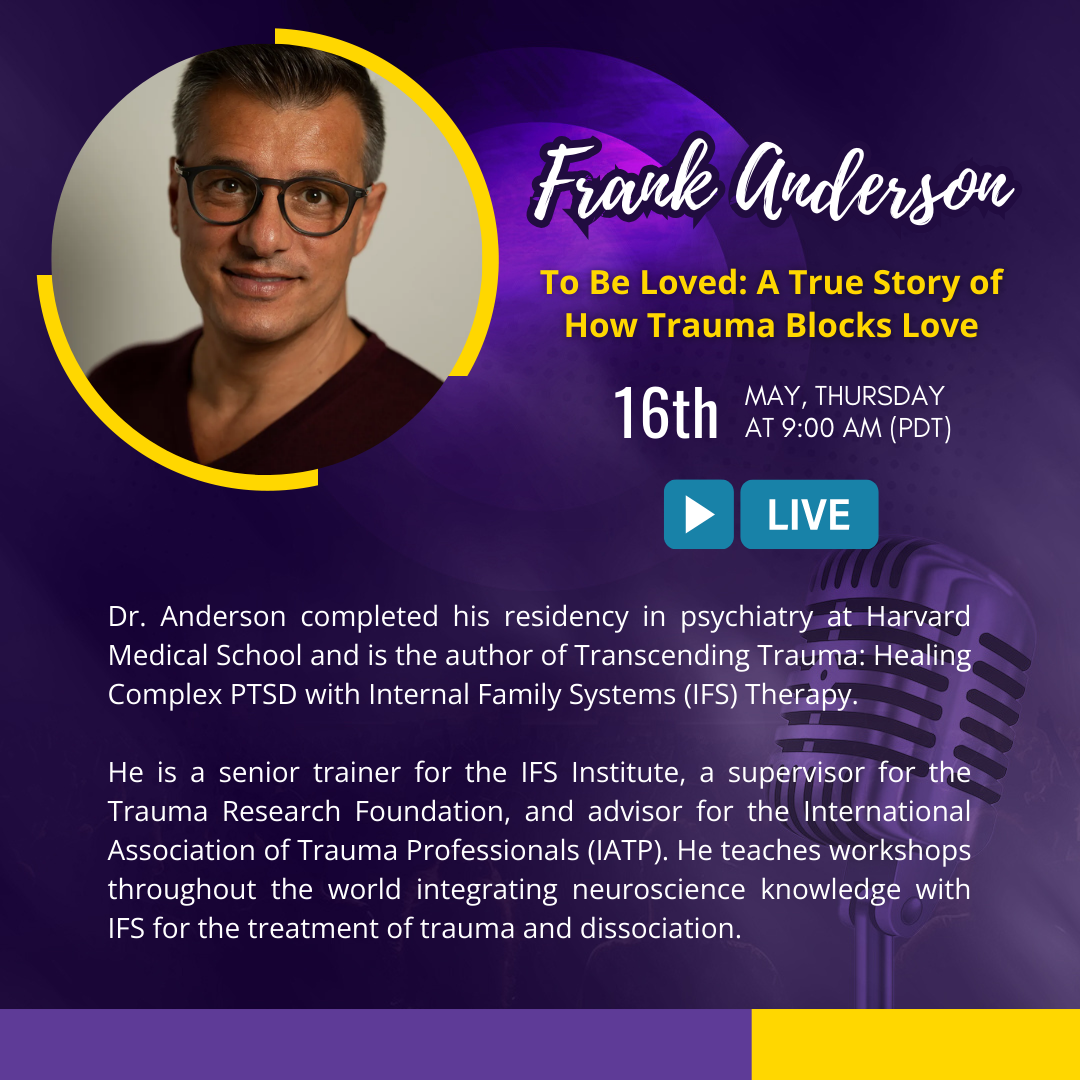

Who Is This Journey NOT For?
This journey is not a good fit for those that:
- dislike working in a collaborative group environment.
- do not enjoy online learning.
- do not have 6 hours weekly to invest in training and professional growth.
- need a lot of one-one support or are looking for individualized coaching or therapy.
Your Biology of Trauma® Instructor,
Dr. Aimie Apigian
Dr. Aimie is a double Board-Certified medical physician who specializes in trauma, attachment, addictions and addressing trauma on a cellular level. She earned her medical degree at Loma Linda University and has a Masters in Biochemistry as well as a Masters in Public Health. She trained for three years as a general surgeon before changing her career path.
In addition to her medical studies, Dr. Aimie has studied with and participated in Dr. Allan Schore’s Attachment Regulation Theory Study Group. She is a highly-trained somatic experiencing practitioner, trained in NeuroAffective Touch™, Internal Family Systems (Parts Work) and the Instinctual Trauma Response Model™. She continues to attend advanced trainings in Somatic Experiencing™ with Dr. Peter Levine and acts as an editor for Somatic Experiencing International.
She is not one to sit back and talk about problems. She is a solution-focused action taker- always looking for ways to improve our current method and accelerate the healing journey back to our best health and our best selves.

Frequently Asked Questions:
Q: What exactly am I purchasing here?
Q: What time will the bonus sessions with Dr. Aimie be held?
Q: What is the difference between the Professional level and the Advanced Professional level?
Q: Who Is eligible to take the Advanced Professional level of the Attachment and Neurodevelopment module?
Disclaimer: This is not a course that gives you a license as a provider nor is it a health or trauma recovery coach credentialing program. At the completion of each module, you will receive a Certificate of Completion indicating you have achieved competency on that specific topic of Biology of Trauma®. At the completion of all 6 modules of the Certificate Course, you will receive a certification as a Biology of Trauma® Professional from Trauma Healing Accelerated. This is a certification that you will be adding to your professional work capacities.
You are still held to the restrictions, responsibilities and privileges of your primary license and board.
Medical Disclosure: The information and programs presented on or through this website are made available to equip you with knowledge and tools. All the materials in this course are intended for educational purposes. This information nor any programs that are offered are (nor are a substitute for) medical advice, diagnosis, or treatment. For any physical or mental health issues, I recommend you work with a qualified health provider who will also support your desire to address the effects of trauma.


